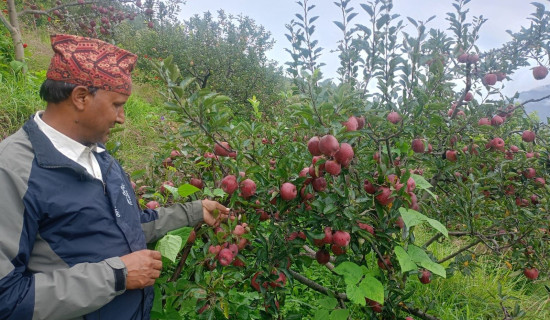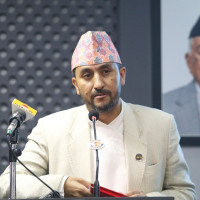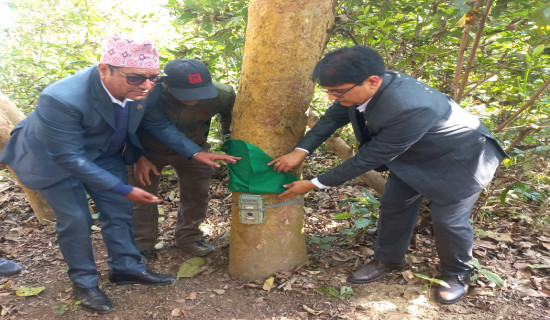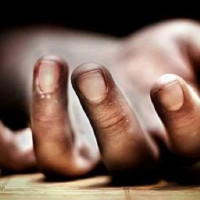- Tuesday, 16 December 2025
Nepal, EU join hands with UN to execute gender equality plan
By A Staff Reporter,Kathmandu, Feb. 9: The Government of Nepal, the Delegation of the European Union in Nepal and the United Nations launched a four-year joint programme to advance gender equality and contribute to the empowerment of women and girls to realize the national vision of a prosperous and happy Nepal (vision 2030).
Minister for Women, Children and Senior Citizens, Bhagwati Chaudhary, the Director for the Middle East, Asia and Pacific at the Directorate-General for International Partnerships of the European Commission, Peteris Ustubs and Elke Wisch, UNICEF Representative to Nepal jointly launched the programme at a ceremony held in Patan on Wednesday.
“Empowering women is crucial for the prosperity of Nepal. In the 21st century, we must strive to eliminate discrimination against women and girls. We are honoured to be a part of the collaborative effort between the EU and UN agencies towards this goal,” said Minister Chaudhary.
The programme, titled “Empowered Women, Prosperous Nepal” (Shashakta Mahila, Sambriddha Nepal) ultimately seeks to strengthen equal rights and opportunities for women and men by engaging with men and boys, families, and communities to exhibit more gender-equitable behaviours, as well as support for positive social and gender norms that promote Gender Equality and Women’s Empowerment (GEWE), resulting in increased agency and voice of women and girls.
The programme, with a total budget of US$19.5 million, will be jointly implemented by four UN agencies (ILO, UNFPA, UNICEF, UN Women), in three provinces, namely Madhes, Karnali and Sudurpaschim from 2023 to 2026 in collaboration with federal, provincial and local governments.
The programme has been designed following an in-depth situation analysis and extensive consultations with wide range of government bodies, civil society organizations and other stakeholders.
“Nepal is at a strategic crossroads - with a recent, strong and democratic constitution bringing a very ambitious reform to a federal system, and on the verge of graduating from Least Developed status. And these two important milestones for Nepal’s development rest on Nepal’s capacity to use its potential to the fullest, which means using all hands and all hearts to the betterment of the country,” said Director Peteris Ustubs.
Nepal has not only the opportunity, but the necessity, to count on its entire people, including women and men in all their diversity to make these ambitions real, he said.
The programme aims at addressing the formal and informal barriers to development that women and girls face in Nepal.
It will also acknowledge the intersecting vulnerabilities, formal and informal forces that combine to leave half of Nepal’s vital forces behind and ensure that women, men, girls, and boys, in all their diversity, have equal access to economic, labour, and social rights.
“It will take a ‘whole of society’ approach with government at all levels, civil society, private sector and development partners working together to achieve this great aspiration.” said Wisch.
“With men and boys at the forefront to tackling the social norms that continue to drive discrimination against women and girls, and joining efforts to promote gender equality in their families and communities, together we can create a more inclusive and equal society.”
The event was attended by representatives from the Government of Nepal, heads of agencies of the United Nations, heads of Missions/Ambassadors of development partners and EU member states, and civil society organisations.
















